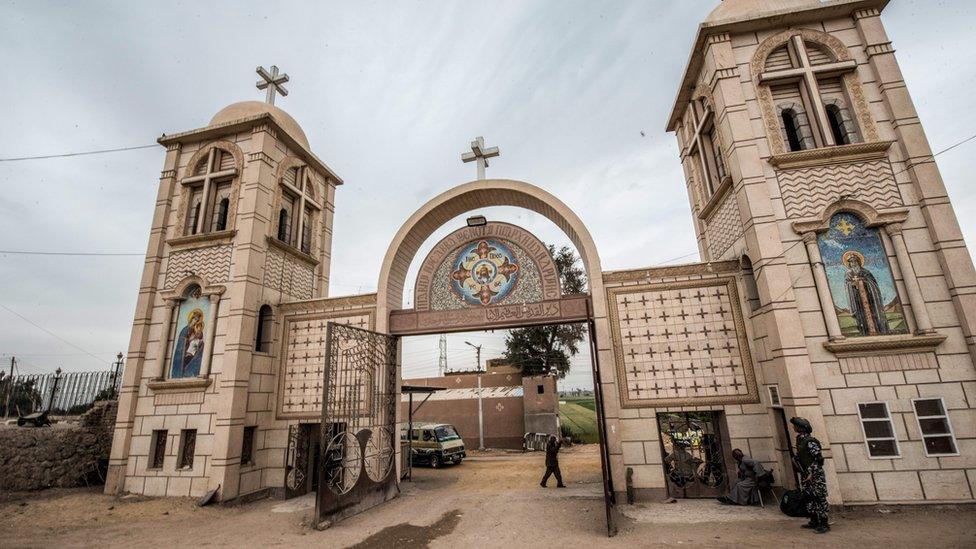Egyptian woman 'wins court battle' over unequal inheritance laws
- Published

Egypt has about 10 million Coptic Christians
A Coptic Christian woman in Egypt says she has won a legal battle to receive the same inheritance as her brothers.
Under the Islamic Sharia inheritance laws the country mainly relies on, female heirs inherit half that of male relatives.
Huda Nasrallah, 40, brought the case to test the legality of the statute.
The human rights lawyer built her case around Christian doctrine of equal inheritance. Two courts had earlier ruled against her based on Sharia.
Sharia has been used in personal status law regardless of an individual's religion, and this verdict could set a precedent.
She will receive the same share of her father's inheritance as her brothers, who had supported her efforts.
"It is not really about inheritance, my father did not leave us millions of Egyptian pounds," Ms Nasrallah said, according to AP news agency. "I have the right to ask to be treated equally as my brothers., external"
Rights activist Ishak Ibrahim said of the latest ruling: "The law assumes that if the [Christian] inheritance beneficiaries agree on applying the Christian laws, the [inheritance] is divided equally. If they disagree, Islamic Sharia is applied."
Unequal inheritance laws have become a big issue in several Arab countries following a proposed bill in Tunisia last year that would ensure equality.
Ms Nasrallah is one of about 10 million Coptic Christians living in Egypt.
The Coptic Church is the main authority on marriages and divorces of its followers, but inheritance laws are left to the state to decide.
Coptic Christians are a significant minority in Egypt
- Published16 October 2017

- Published27 April 2017

- Published2 January 2024
